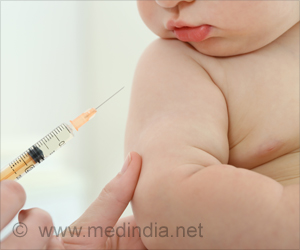Measles is a highly contagious childhood viral illness and potentially lethal but can be safely and effectively prevented at any age by vaccination.
Highlights:
- Standard measles vaccines are proven to be both safe and effective and most persons who receive the recommended two doses of measles vaccine remain fully protected from symptoms of the disease even if they come in contact with the virus
- Measles is a highly infectious respiratory disease in the world that can be potentially life-threatening.
- Reasons for continued outbreaks despite vaccination programs include persons from abroad who carry the virus and bring it into the US.
- Another reason is due to the spread of the virus in communities with individuals who are not vaccinated and become exposed to the virus
Read More..
Measles Infection Is Highly Infectious
- The measles virus can very easily infect people at risk who are vulnerable such as people who cannot get vaccinated because they are too young or have underlying medical conditions.
- Once an infected person goes outside, he can discharge the virus which can remain viable in the air and on surfaces for nearly two hours and infects persons who come in contact with it.
- The infection is so contagious that if one person has it, 90 percent of close contacts of the patient who are not vaccinated will get infected
Preventing Measles through Vaccination
- The measles vaccination program was introduced in the 1960s through the MMR vaccine
- Measles can be easily prevented by the MMR (measles, mumps and rubella) vaccine. It is given to persons 12 months and above and two doses are recommended by the FDA
- The MMRV (measles, mumps, rubella and varicella zoster) vaccination also provides protection against chickenpox
- The measles vaccine is proven to be safe and effective in several studies and undergoes stringent tests before being approved for clinical use
- Measles vaccines are known to have potential side effects, such as fever and rash but they are generally mild and short-lived
- The measles vaccine is a live vaccine, i.e. it contains a live but weakened virus that cannot produce disease but can stimulate the immune system to produce protective antibodies
- Two doses of the measles vaccine offer lifelong immunity against the infection
- Measles vaccine not only protects those who are vaccinated, but also other people who can’t be vaccinated. This is termed herd immunity and the more the number of immunized persons, the lesser the chances of an unvaccinated person being exposed to infection
- Many health organizations including the CDC (Center for Disease Control), the WHO and the Institute of Medicine as well as the American Academy of Pediatrics have conducted several trials that have failed to show a link between measles vaccination and autism
- The bottom line is that the vaccine does not increase the risk of developing autism or trigger autism in susceptible children
Who Can Be Vaccinated with Measles Vaccine and Who Cannot?
- Children can be immunized, starting with the first dose at 12 to 15 months of age, followed by the second dose around ages 4 to 6 years
- Adolescents and adults who have not been vaccinated should also be vaccinated to protect themselves
- Adults who have proof of measles vaccination or proof of having suffered measles infection need to be immunized
- Pregnant women should not be immunized due to risks to the baby. Women who have had MMR vaccine should avoid pregnancy for at least a month
- Persons who have had previous allergic reactions to the vaccine, to gelatin or neomycin should not receive the vaccine
- Persons with medical conditions such as HIV, cancer, poor immunity, on steroid therapy should consult their doctor before getting measles vaccination
About Measles Infection & Its Potential Complications
- Measles causes rash on the face and extremities, runny nose, fever and it affects mainly the throat and lungs.
- Usually, children are affected although all age groups are susceptible
- Complications are more common in children below 5 years and adults over 20 years
- A person with measles can infect others four days before the onset of symptoms and four days after the onset of symptoms.
- Complications of measles include ear infection, diarrhea, brain injury, serious lung infection, and death.
Summary
Vaccination is the best way to protect any child or adult from measles infections. Measles vaccine (MMR) is proven to be safe and effective and two doses confer long-lasting immunityReference:
- Vaccination Is the Best Protection Against Measles - (https://www.fda.gov/consumers/consumer-updates/vaccination-best-protection-against-measles)
Source-Medindia











